What is British Culture?
Four countries make up the UK with different languages, food and heritage but one thing that is shared is the British Culture. Wales, Scotland, Northern Ireland and England make up the UK and although different in many ways, there are a few points that reflect the similarities.
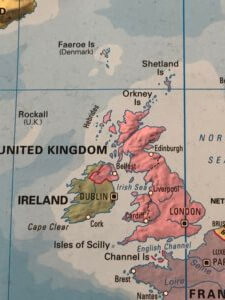
Rob Temple’s book Very British Problems and Twitter page helps by explaining regularities among the British Culture. If you want the ultimate further reading to know more through jokes and funny quips, you can purchase the book through Amazon here. It is an amusing read that had me laughing for hours.
I’m going to give 5 simple points that will help answer the question ‘What is British Culture’.
The 5 points are:
- Tea
- Manners
- Weather
- Drinking
- Humour
1. Tea: The Staple Beverage of British Culture
Contents (jump to)
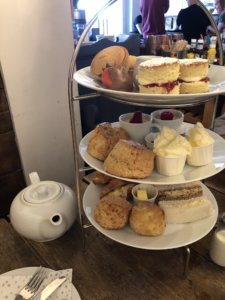
2. Politeness is Paramount
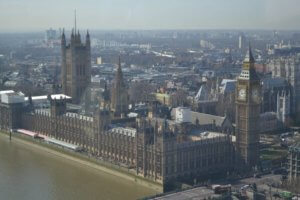
British people pride themselves on possessing splendid manners. A please and a thank you go a very long way in Britain. From a very young age, we are constantly reminded to say thanks after we’ve been given something. In later years, (hopefully) the children will have caught on to saying please and thank you without prompt. With that, comes the utter horror when someone dares not to use their manners in adulthood! As an example, always thank someone for holding the door open for you, add a ‘cheers’ in there followed by another thank you and finally end with a ‘sorry’.
2a. Sorry
Along with please and thank you’s, is the word ‘sorry’. This is possibly the most overused word in the UK and sometimes is said for absolutely no reason. As an example, if person A is walking down a street and moves out the way for person B but person B is oblivious and still bumps in to person A, they will both say sorry even though person A did nothing wrong. It would be rude not to say sorry in British Culture.
The ultimate thing that British people loathe is rudeness. When someone does something rude, they usually aren’t told how rude they were by anyone because no-one else wants to look rude by confronting them. It’s a catch 22 really, we all beat around the bush because we don’t want to cause offence. On the flip side, if someone offers a compliment and that person gracefully receives it, it seems quite rude. Cockiness and boasting is not accepted in British Culture. As a result, it is ingrained into us that we must not easily accept compliments but remain humble at all times.
Lastly, I must mention a staple part of British Culture. Queuing. We are a nation of queuers and always will be. If you see a bunch of people formally lining up outside a ticket booth or a food buffet, I can bet they are British. Pushing in is probably about the most rude thing you can do in the presence of the Brits. Of course, we won’t say anything directly to you (we don’t want to seem rude) but you can guarantee there are heads shaking and eyes rolling in disbelief.
Read Next: Top Phrases Used in South Wales Only
3. Have you seen the weather?
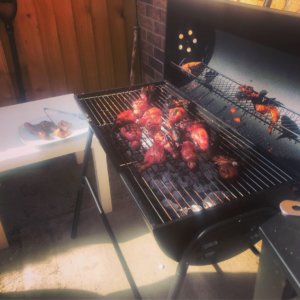
If you have been to the UK and not heard any comment about the weather, you haven’t truly experienced British Culture.
On one hand, the weather is used as small talk in offices, bus stops and anywhere else where Brits are internally panicking over the awkward silence. On the other hand, however, talk about the weather implies how someone is feeling, i.e. if they are optimistic that although it is raining, it is ‘supposed to brighten up tomorrow’, they are probably feeling okay. If their attitude matches the gloomy weather, there is potentially something worrying them.
In Britain, it rains a lot and we love moaning talking about it. When the temperature drops and the rain pours, we walk around like drowned rats and complain how it’s too cold. If it snows 1 inch, panic-buying kicks in so bread and milk go extinct, every school and business shuts down and nobody knows how we’ll ever get through it. We yearn for those hot summer days spent in beer gardens to get suntanned and enjoy the sunshine. When those summer days actually come back around, everyone dreads bedtime when it’s just too hot to sleep, suntans are actually sunburns and there is a national shortage of fans. This ongoing cycle continues season on season and goes hand in hand with the British humour, because to say it’s absolute glorious weather outside, actually means it’s pouring down (see point 5).
4. What is British Culture without a cheeky pint?

5. Sarcasm is never used in British Culture

Every nation has their own humour which connects fellow country-people when travelling. If you’re reading this and you’re British, you understand the meaning of this paragraph’s heading. The use of sarcasm and saying the opposite of what we mean is second nature in the UK. The sarcasm and over-emphasised mannerisms are part of the make-up of a British person. There are many layers to British humour and a simple blog post can’t wholly grasp my favourite part of British Culture. If you are travelling to the UK, here are a few things for you to learn about British humour that may help you on your travels.
The prime time to hear good humour is amongst family, friends and colleagues because laughing is the foundation of a good time. Some of the best moments are when one friend drops a brilliant one-liner, sarcastic comment or clever pun and another friend replies with an even better one-liner, comment or pun. British people don’t spell out jokes because it is on the other person to understand the joke and come up with a better, more sarcastic, comeback which is central to basic British humour.
Humour is used in many moments such as:
Hearing bad news
As a defence mechanism
A subject-changer
An ice-breaker
Ending an argument
Starting an argument
Showing affection
Expressing deep anger.
There is no cut off point and humour can be used at any time which catches people off guard. It takes time to get used to, so if you overhear something in the UK you don’t think is right, it’s highly likely that it isn’t meant to cause offence.
But not always.
There is a difference between humour and taking it too far. It’s about weighing up the words, tone of voice, gestures, setting and body language.
5a. Banter
The phrase ‘taking the mick’ is joking about someone or something. Also known as taking the mickey, banter, poking fun, messing about and other variations. To be able to take the mick out of yourself is highly regarded in British Culture. It is also used as a term of endearment because it emphasises how nice you actually think they are. It means more to say something as a joke than saying the specific words.
The use of understatement is heard a lot in British Culture and specifically when emphasising a point. This is because people will better understand an opinion through the way things are said, not the actual words. Therefore, in the UK, what we say can often mean the opposite and it could be hard to detect the humour or the true meaning. Jokes could be said in such a blasé manner that it may be missed as a joke entirely. Once the joke is realised, however, it is that much funnier. This technique is also used when pointing out something obvious or wanting to emphasise someone’s stupidity.
If you want to know more, there are TV shows that portray British life through everyday life scenarios. Shows such as Only Fools and Horses, Gavin & Stacey, and The Inbetweeners.
These are five important parts of British Culture. The Happy Days Travels encourages learning through travel and I hope you have learned a bit about British Culture.
My UK Blog Posts:
- How To See London
- What to Do in Cardiff, Wales
- Romantic Stay in a Taunton Log Cabin
- Visiting London’s Victoria & Albert Museum
If you like this post, please pin it!
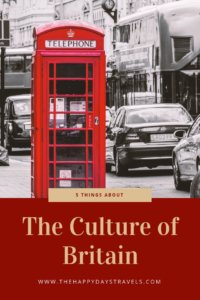

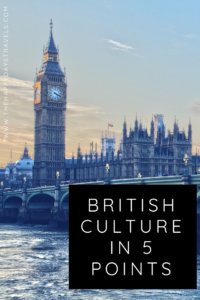
Disclosure: This blog post may contain affiliate links, meaning, at no extra cost to you, I may earn commission if you click through and make a purchase. As an Amazon Associate I earn from qualifying purchases. For more information, see my Privacy Policy and Terms & Conditions.
To immerse yourself in British Culture, find accommodation through the search box below to take you straight to booking.com!
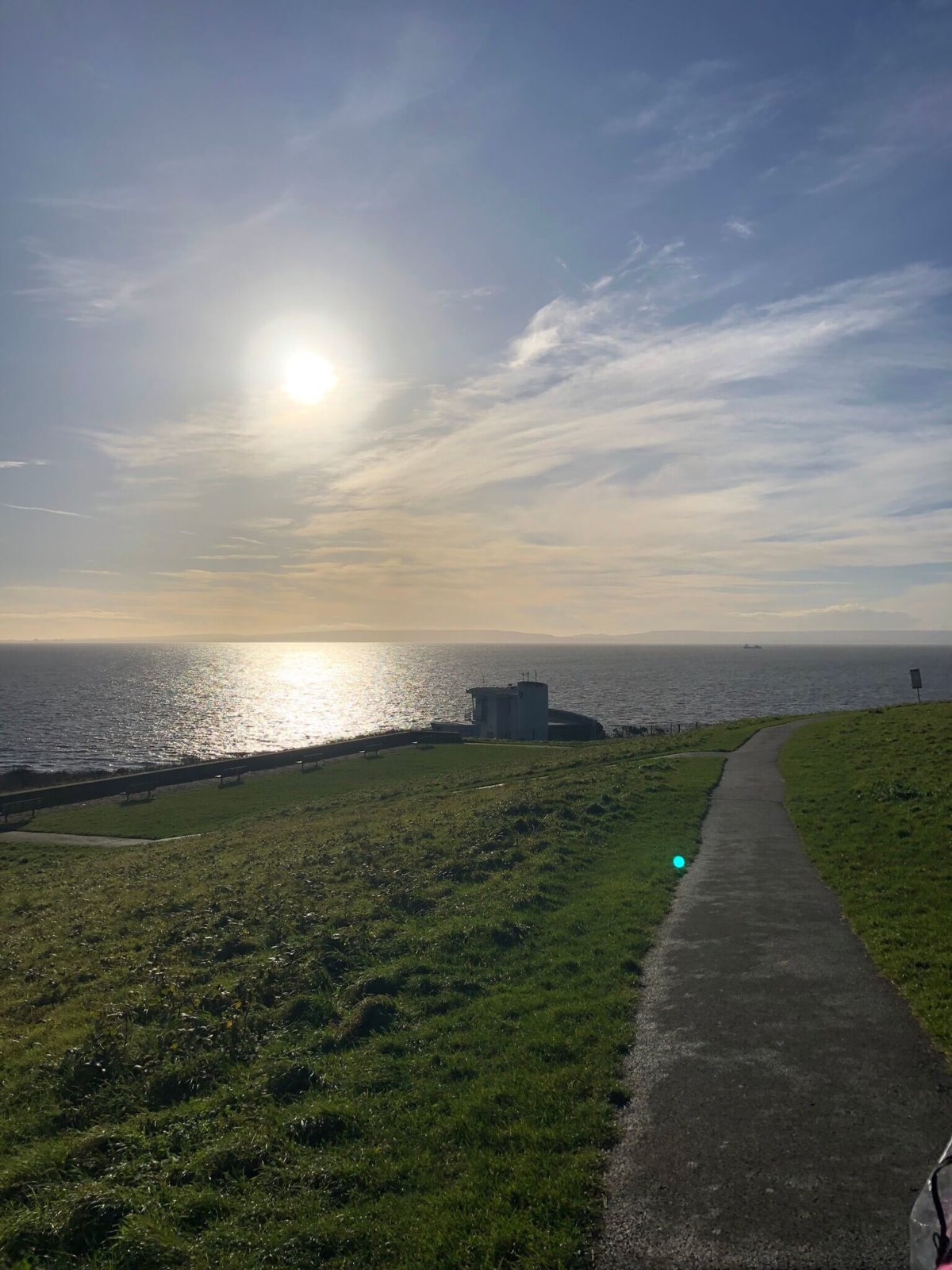
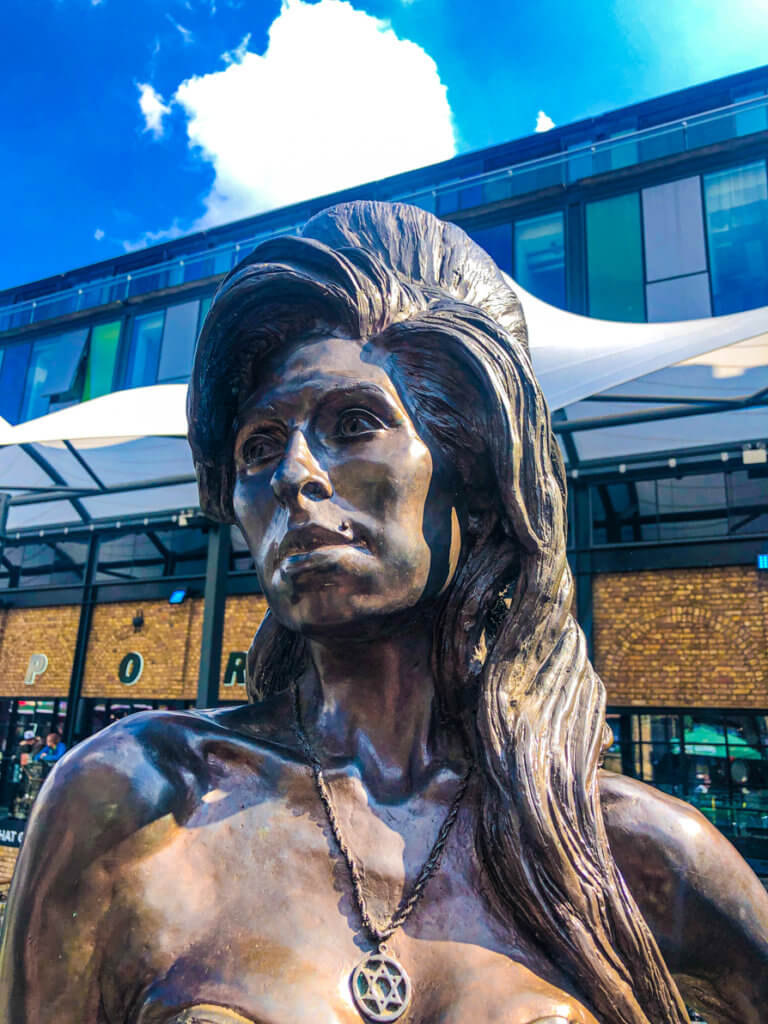
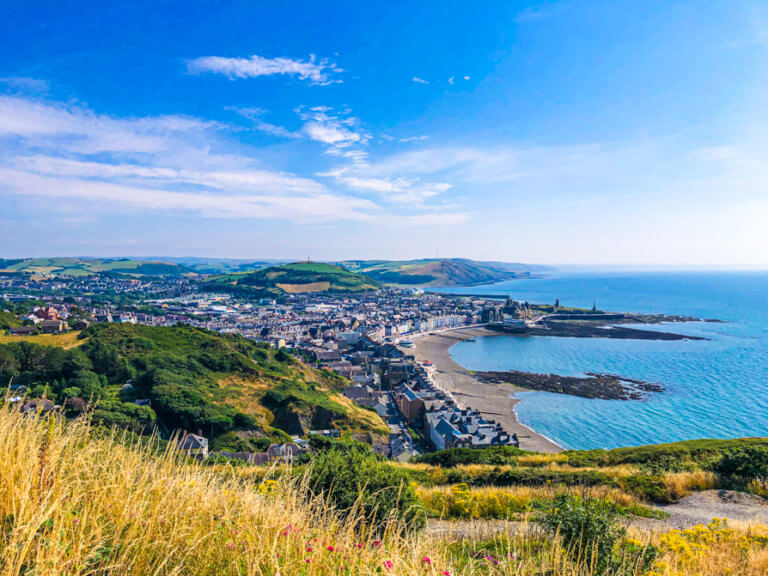
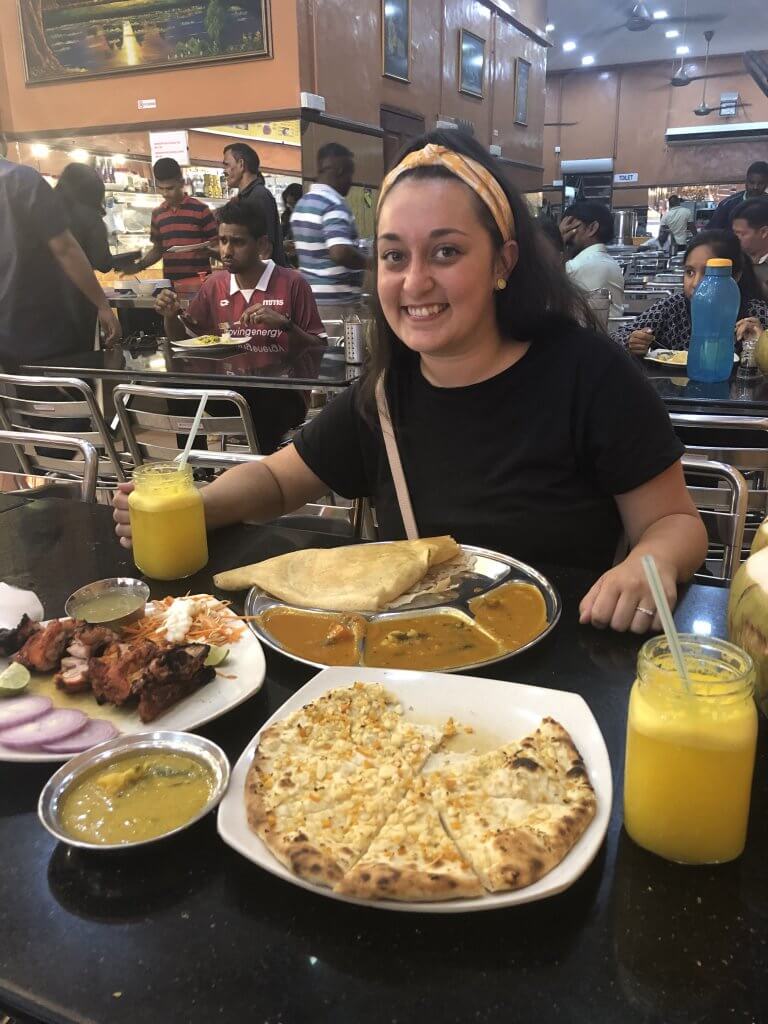
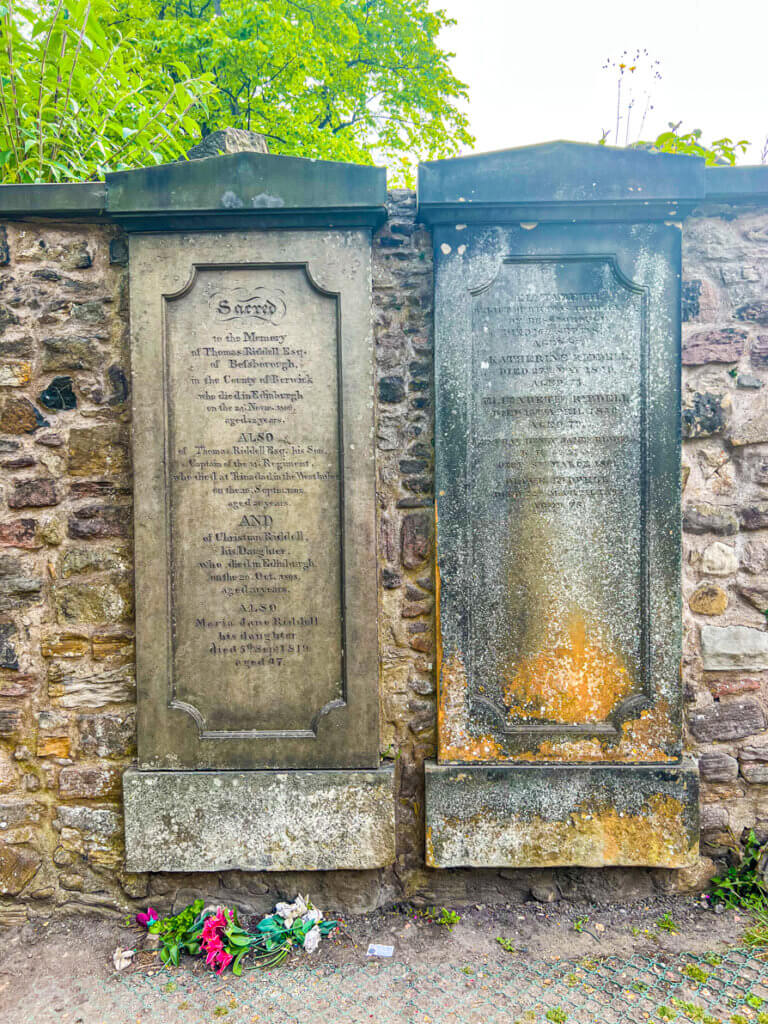
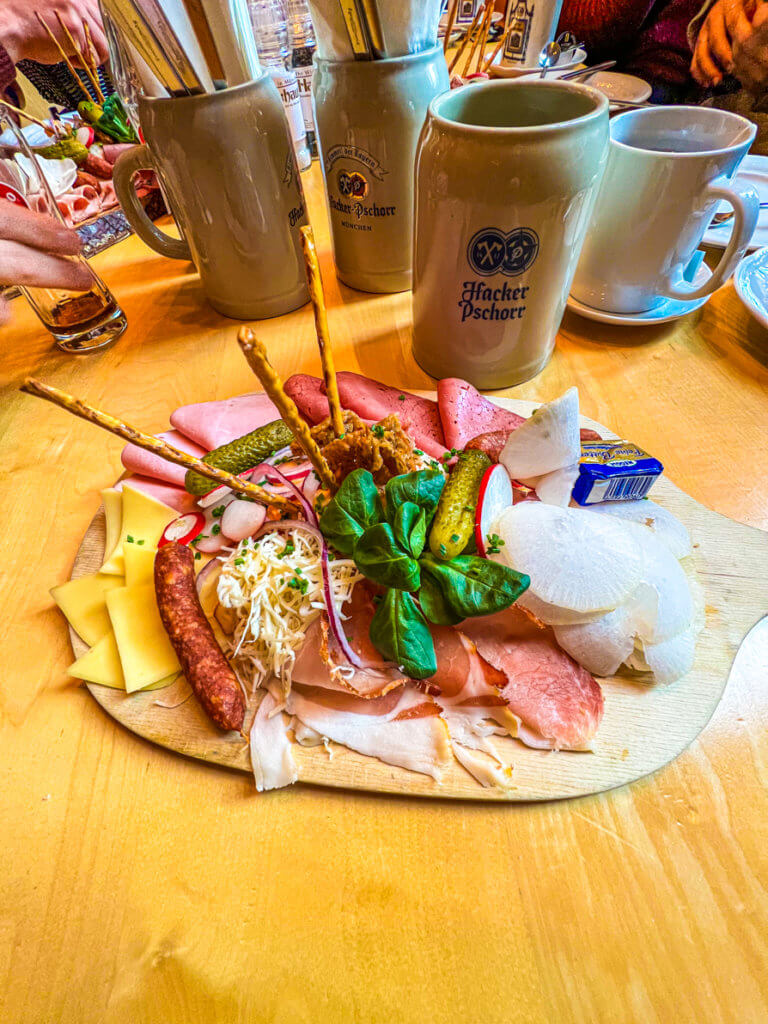
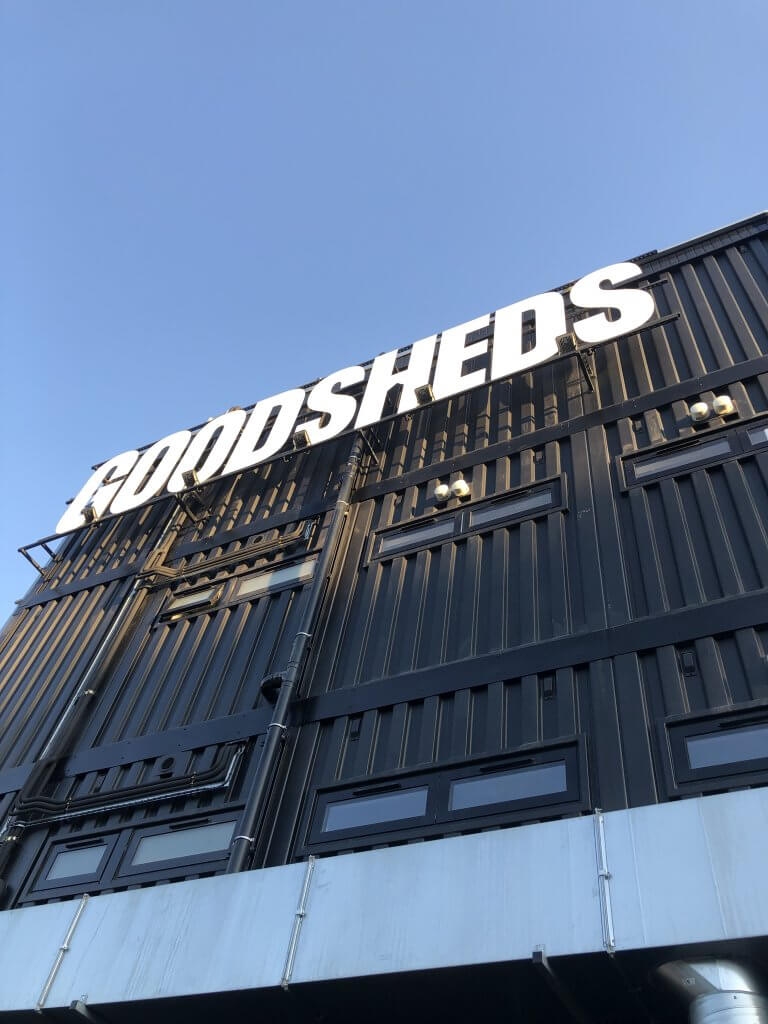
This was a fun read! I hope to visit the British Isles …someday!
Hi Dana. Thanks for your comment! I think you’d really enjoy it especially if you enjoy green scenery, cups of tea and fish and chips! 🙂
Absolutely right I hv been living in the UK for last 20 years and love the culture spacialy please thanks sorry and giving way on roads to other users.thanks for such a nice post.
Hi Arfat, thanks for your kind comment.
I forgot about the roads… that is a very good point! Also the outrage if someone doesn’t say thank you if you give way to them haha.
Such an interesting post! Definitely want to visit now 😉
Such an interesting post about the British culture! Definitely want to visit now 😉
Hi Johanes, thanks for reading. So glad to hear that you want to visit the UK after my post. I hope you come in the summer for some nice weather though! 🙂